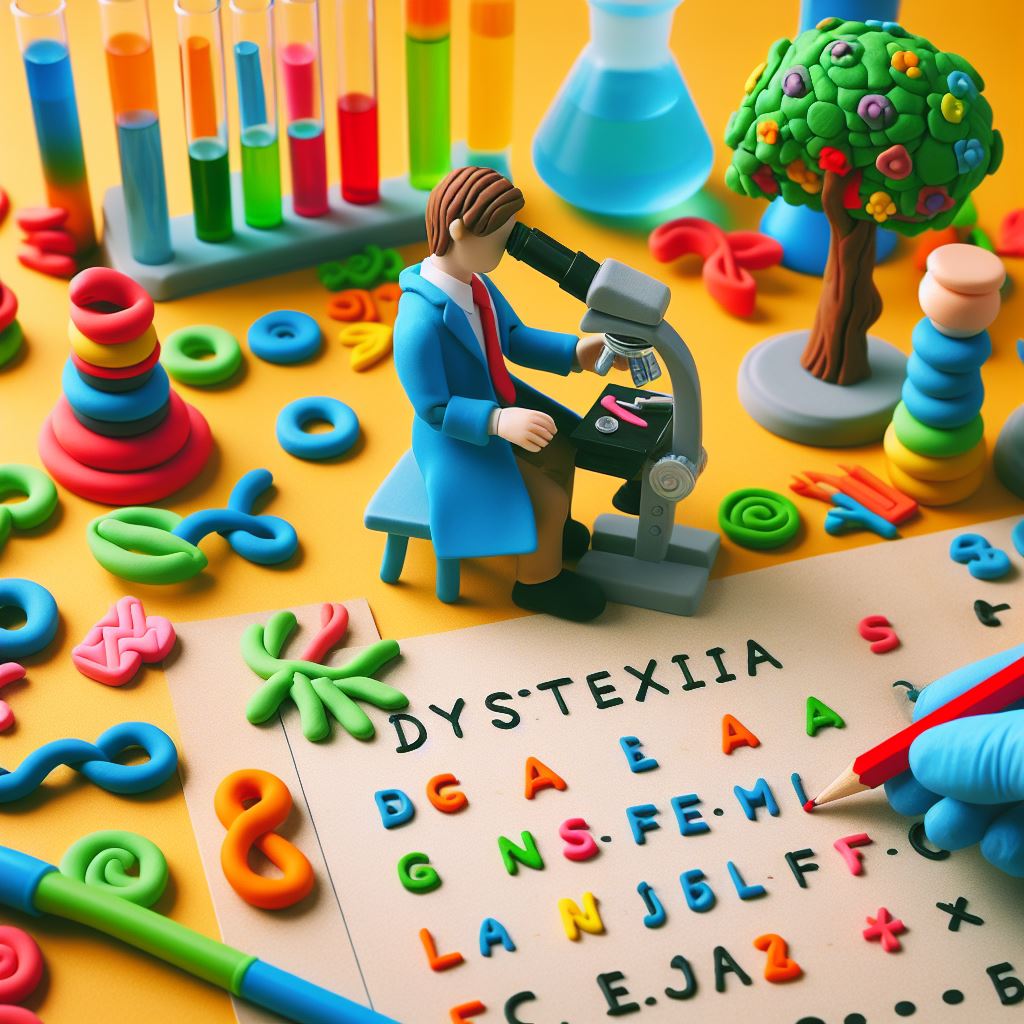Research into the genetic background of dyslexia can be found here.
Insights into Dyslexia Genetics Research from the Last Two Decades
The Week of Dyslexia takes place in the first week of October.
Check out the website here: Week van Dyslexie
Dyslexia is most likely partly caused by genetics. We know this because it tends to run in families. However, it's not solely genetic. If dyslexia were entirely genetic, identical twins, who share the same DNA, would always both have it. While often both affected, this isn't always the case. There isn't a single "dyslexia gene"; currently, over 40 genes have been linked to dyslexia, each likely having a minor effect on its own. In a genetically complex condition like dyslexia, there's no one "dominant" or "recessive" gene. These genes are involved in various brain functions, impacting how brain cells communicate.
Despite progress, more research is needed to fully understand how genetic variations contribute to dyslexia.
The brain development of children with dyslexia follows a different path than that of neurotypical children. This aligns with the concept of neurodiversity within humanity. Each individual's development is unique, much like the wide spectrum of hair and eye colors, where no iris is the same. Similarly, with the brain, humanity wouldn't stumble at the first obstacle because we all think in the same way. Genetically, variation ensures biodiversity within a species, making it more resilient for survival. Labeling a portion of this biodiversity as flawed overlooks the logic of evolution and reality, disregarding the insight missing from extinct species. This notion is supported by the research of Helen Taylor, who has specifically focused on dyslexia.

Although dyslexia itself, in the light of genetics, cannot be directly addressed, similar to someone's eye color, environmental factors can have a significant impact on a child's development. For parents of children with dyslexia, it's evident how much of a difference it can make when a child has a teacher who is not only skilled but also well-informed about dyslexia. Parental involvement is crucial, not only in terms of knowledge about dyslexia but also emotionally. Providing support, ranging from reading aloud to patiently guiding through the complex rules of dyslexia at school and other institutions, is invaluable. The goal is not only to develop reading and writing skills but also to strengthen the child's self-esteem and foster a positive attitude towards learning.
While it's challenging to maintain consistency due to the variation in teachers and schools, often encountering misunderstanding or indifference, we at Dyslexia Font continue to advocate for greater attention to dyslexia in the global education curriculum. Currently, teachers often receive only an hour of instruction on dyslexia, which is insufficient to gain a deep understanding of how to support dyslexic students effectively. It's not enough to merely know how to recognize dyslexia; it's essential to have the knowledge to handle dyslexia effectively, even after the diagnosis is made. It's not the fault of teachers for lacking this essential knowledge; rather, it underscores the need for more extensive training and support for educators.
This is one of the reasons why we initiated the Dyslexia Awareness Week here in the Netherlands, for parents, children, the workplace, and also for teachers. Step by step, we are bringing about change and hearing from teachers that they have gained new insights. They realize what they have been doing wrong all these years and see that with a different approach, they are much more effective. This results in more motivated children who highlight their strengths and use them to compensate for their weaknesses.
Research into the genetic background of dyslexia can be found here.
Insights into Dyslexia Genetics Research from the Last Two Decades
The Week of Dyslexia takes place in the first week of October.
Check out the website here: Week van Dyslexie
Since 2018, Dyslexie Font has collaborated with the HOI Foundation to organize the Dutch Week of Dyslexia every first week of October. Our aim is to alter perceptions of neurodiversity and dyslexia by providing information to dyslexic individuals, parents, children, teachers, and businesses.
We strive to present a comprehensive view of dyslexia, highlighting not only its challenges but also its strengths.
EMAIL
Contact page
info@dyslexiefont.com
PHONE
(we are in the Netherlands)
NL: +31 (0)20 820 41 37
UK: +44 2033 180 058
USA: +1 540 227 64 84
DYSLEXIE FONT IS PATENTED COPYRIGHT © 2024 DYSLEXIE FONT B.V. ALL RIGHTS RESERVED. DESIGN BY DYSLEXIE FONT
We use cookies to see if our carefully crafted design is working as intended—or if it’s just collecting dust. This helps us improve the site and answer questions before you even ask. Say yes to cookies, and you’ll help us make things better.